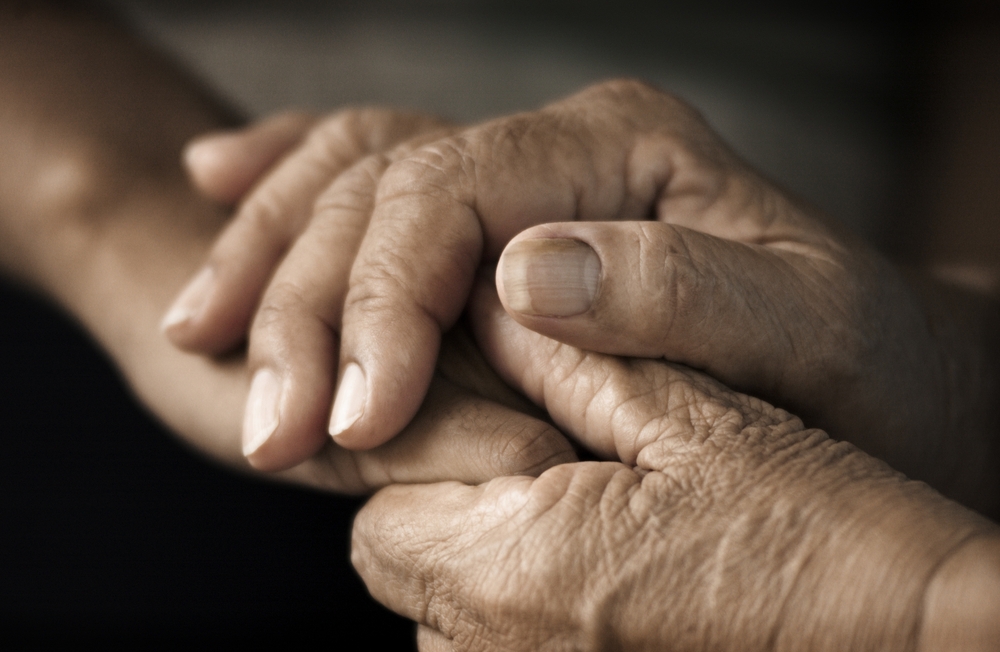
 Jennifer Lipski
Jennifer LipskiIn my role as a hospital chaplain, I am often called to be with family as they gather at the bedside of their gravely ill loved one. Sometimes, and in certain circumstances in which a person has no chance of recovery, a family may make the inordinately difficult decision to have the breathing machine shut off that is keeping their beloved alive.
“Soon after that…”, it is gently explained to them, “...death will come.”
When the phone rings with this news, I go to them as quickly as I can.
I stand with them as they stand vigil--watching, waiting, wide-eyed and wondering so many things--during this final hour, and I often hear in hushed tones many “should haves” that are reverently and sorrowfully whispered, things like:
I should have spent more time with you.
I should have listened to what you said.
I should have been more patient.
I should have told you that I am sorry.
I should have told you that I love you.
I bear somber witness to the fact that the grief experienced at the death of a loved one knows no boundaries--because no matter what religion, no matter what the diagnosis, no matter how rich or poor, no matter how successful, no matter how educated--these universal expressions are followed by that final, equalizing moment.
The death of a beloved forces us to rethink our own life.
The family, after a time, departs the hospital and then must try to make sense of what has just happened--an entire physical person who was always there, now no longer is.
Some of the family might even feel as if they could very well die in that moment, too. In the days and months to come, the memories of that death day coupled with the inevitable subsequent life changes taunt what some call “finding the new normal”--and depression often follows.
~~~
This sort of situation happened to me when my grandmother, my Nana, who was my very best friend, died. It took me years to understand that after someone whom you love dies, any efforts for even the smallest part of you to remain the exact same are in vain. I realized after she died that the person whom I was when she and I walked through this life together no longer existed in the same way.
I was different; everything was different. And eventually, through life’s journey, I learned how to honor that difference. We often don’t want to, of course, because it HURTS when we first start to enter into this new landscape.
Once I gave up the exhausting struggle of trying to maintain that impossible former self,
I felt the weight upon my shoulders, ever so slightly, lift.
I felt lighter. Life began filling, a little bit at a time, with possibility.
If you have gone through a loss, or are grieving someone and just can’t seem to move from that space of “what was-to-what is”--start by releasing the “should haves.” You might be holding onto them more firmly than you realize, and they may be sinking your ability to get through each new day.
So write the “should haves” down, sing them out, think of them as you are walking the dog, or cooking, or even sitting on the couch crying--whatever way you can get them moving, do so. Release them to the light. Bring in other ways of saying what needs to be said. Try simply re-wording those same phrases from above; say them aloud, and notice how this slight shift can make you feel differently:
I would like to have spent more time with you.
I would like to have listened to what you said.
I would like to have been more patient.
I would like to have told you that I am sorry.
I wanted to tell you that I love you.
I wanted to do all of these things.
--I didn’t. And I am sorry.
Release yourself from the immobilizing grip of the “shame of the should haves.”
Changing the words we use is a good first step to allow yourself to re-align with “what is now.” Let this practice allow the doors of your grief space to open. Eventually joy will no longer seem like a foreign land, and you shall--in time--yearn again to greet the morning as it breaks the sky open with the sun.
~~~
Do you need help after a life-altering loss?
Connect with Jennifer at YourEarthAngel, she has daytime, evening and weekend hours available: https://yourearthangel.com/coaches/8233#Jennifer-Lipski-RN-MA-CGSS
Jennifer Lipski is a Hospital Chaplain and a Certified Grief Support Specialist with a Masters in Transpersonal Psychology. She studies yoga and meditation as well as indigenous and traditional healing practices from around the world.

 CAREER & FINANCE
CAREER & FINANCE
 HEALTH & WELLNESS
HEALTH & WELLNESS
 SPIRITUAL GROWTH
SPIRITUAL GROWTH
 LOVE & RELATIONSHIPS
LOVE & RELATIONSHIPS
 PERSONAL GROWTH
PERSONAL GROWTH

